80 g / m² seed paper with herb seeds
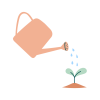 Navigate to Information Information
Navigate to Information Information 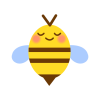 Navigate to Buzz score: 2 Buzz score: 2
Navigate to Buzz score: 2 Buzz score: 2 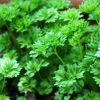 Navigate to Parsley Parsley
Navigate to Parsley Parsley 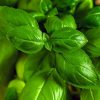 Navigate to Basil Basil
Navigate to Basil Basil 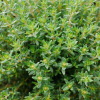 Navigate to Thyme Thyme
Navigate to Thyme Thyme 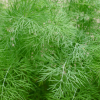 Navigate to Dill Dill
Navigate to Dill Dill 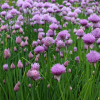 Navigate to Chives Chives
Navigate to Chives Chives 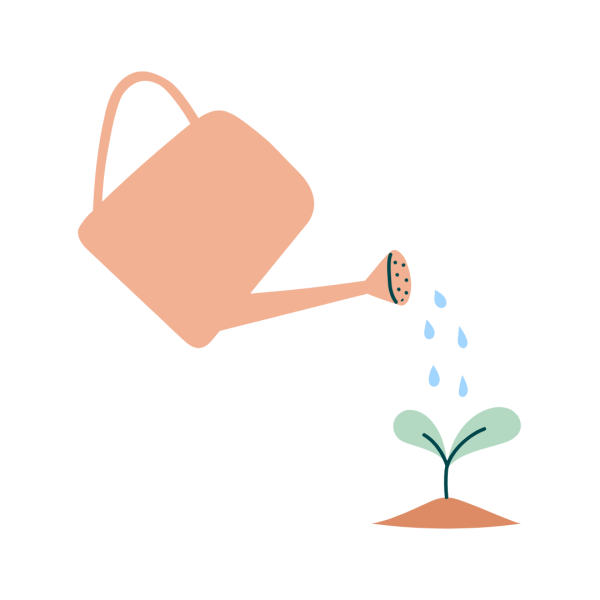
Information
- Seeds: Parsley, Thyme, Basil
- Organic: No
- Origin of the seeds: Netherlands
- Outdoor sowing: from May onwards
- Indoor sowing: Year-round
- Watering: Keep the paper moist for the first 5 days
- Germination: Within 5–6 days
- Soil: vegetable garden soil, keep moderately moist and allow water to drain away well
- Flowering: After approximately 6 weeks
- Position: Full sun
- Plant type: Annuals

Buzz score: 2
The buzz score indicates how much food our seeds provide to pollinators such as bees, butterflies and other insects. 1 bee: Moderately pollinator-friendly to 3 bee: Extremely pollinator-friendly.

Download the plants for pollinators list
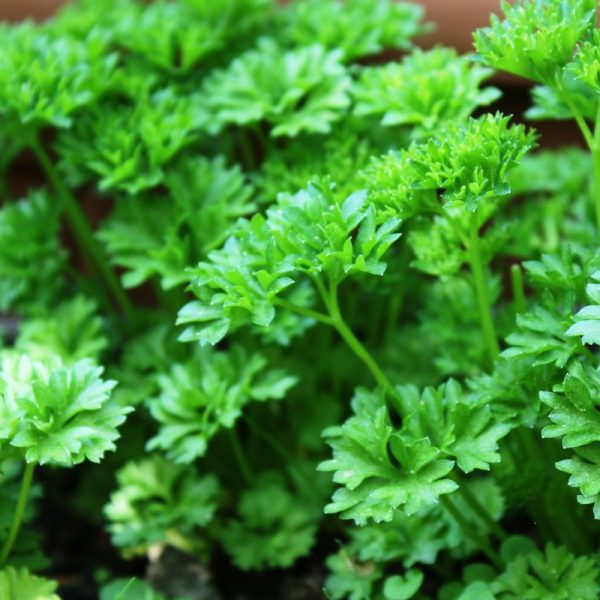
Parsley
Parsley is a popular herb known for its bright green color and fresh, slightly peppery flavor. Native to the Mediterranean region, it is widely used in cooking around the world. There are two main types: curly and flat-leaf (also called Italian parsley). Parsley is often used as a garnish, but it also adds depth to soups, sauces, salads, and marinades. Rich in vitamins A, C, and K, it provides health benefits as well as flavor. Parsley can be used fresh or dried, though fresh is typically preferred for its vibrant taste and aroma. It’s easy to grow and highly versatile.
We make it a point to find bee-friendly seeds for our seed paper, but sometimes that is a challenge. The plant you see may not be a favourite of bees, but don’t worry! Our seed mix contains many other bee-friendly varieties to support bees.

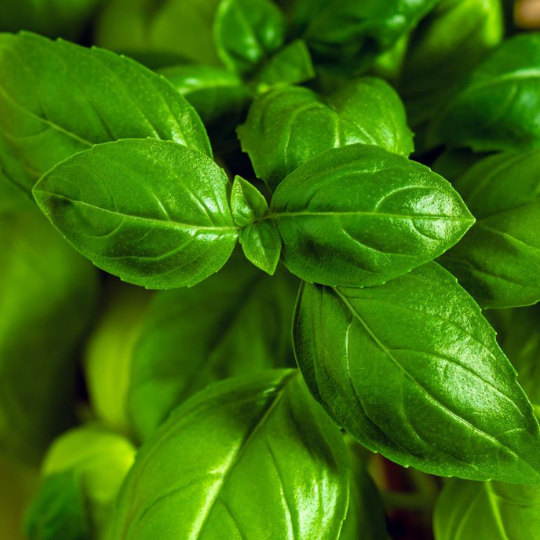
Basil
Basil, a popular herb in cooking for its aromatic leaves, contributes discreetly but significantly to biodiversity. This herb attracts pollinators, such as bees and butterflies, with its flowers, which supports the pollination of other plant species. This promotes the reproduction of various crops and wild flora.
Moreover, basil acts as a natural repellent against certain pests in the garden, reducing the need for pesticides. This leads to a healthier and more balanced ecosystem.
Pollinators are our little heroes, but they face many challenges to survive. You can support them by growing pollinator-friendly plants in your garden. These flowers and herbs provide essential food and habitat for creatures like butterflies, bees, and other insects that play a vital role in pollinating our food crops. Without pollinators, we’d have fewer fruits, vegetables, and even coffee!
The importance of pollinators to our ecosystem and food supply is enormous. By helping them thrive, we contribute to preserving biodiversity and securing our food sources. Planting a pollinator-friendly garden is a simple yet powerful way to protect the environment and support these vital species.

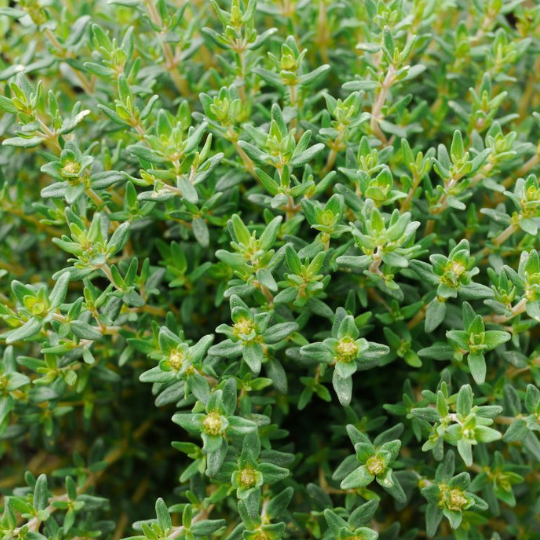
Thyme
Thyme, an aromatic herb with a rich history in cooking and traditional medicine, also plays a role in promoting biodiversity. Thyme plants, with their small purple or white flowers, attract pollinators such as bees and butterflies, supporting the pollination of other plant species. This contributes to the reproduction of crops and wild flora.
Moreover, thyme acts as a natural ground cover, improving soil structure and promoting moisture retention, which is beneficial to other plants. Thyme also has antimicrobial properties and can help maintain a healthy soil ecosystem.
Pollinators are our little heroes, but they face many challenges to survive. You can support them by growing pollinator-friendly plants in your garden. These flowers and herbs provide essential food and habitat for creatures like butterflies, bees, and other insects that play a vital role in pollinating our food crops. Without pollinators, we’d have fewer fruits, vegetables, and even coffee!
The importance of pollinators to our ecosystem and food supply is enormous. By helping them thrive, we contribute to preserving biodiversity and securing our food sources. Planting a pollinator-friendly garden is a simple yet powerful way to protect the environment and support these vital species.

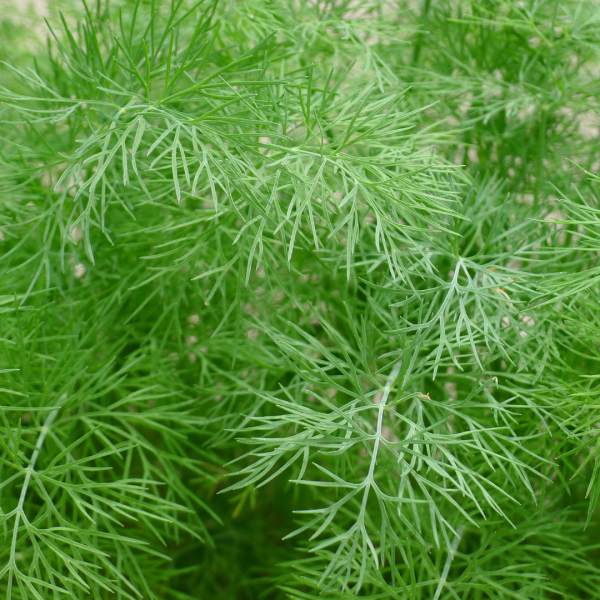
Dill
The dill plant is a delicate, aromatic annual herb with fine, feathery leaves and slender stems that can grow up to three feet tall. Native to the Mediterranean and parts of Asia, it thrives in sunny, well-drained soil. The plant produces small yellow flowers in umbrella-shaped clusters, which eventually form flavorful seeds. Both the leaves and seeds are used in cooking and herbal remedies. Dill is known for its bright, fresh scent and its ability to attract beneficial insects like pollinators. Easy to grow and self-seeding, the dill plant is a favorite in herb gardens and natural landscapes.
Pollinators are our little heroes, but they face many challenges to survive. You can support them by growing pollinator-friendly plants in your garden. These flowers and herbs provide essential food and habitat for creatures like butterflies, bees, and other insects that play a vital role in pollinating our food crops. Without pollinators, we’d have fewer fruits, vegetables, and even coffee!
The importance of pollinators to our ecosystem and food supply is enormous. By helping them thrive, we contribute to preserving biodiversity and securing our food sources. Planting a pollinator-friendly garden is a simple yet powerful way to protect the environment and support these vital species.

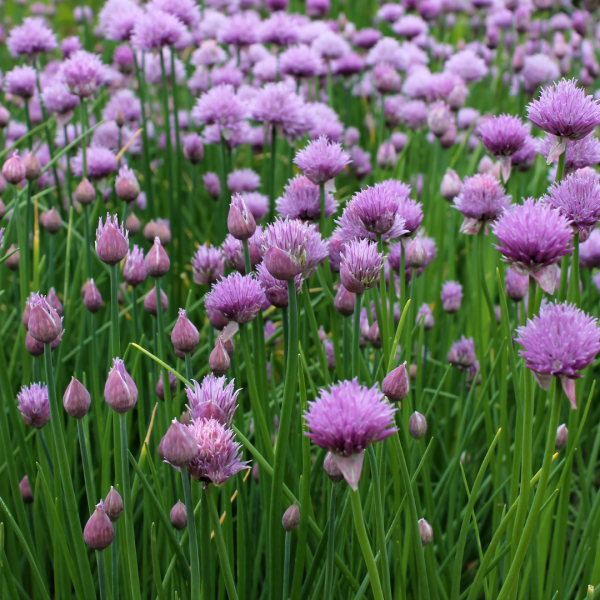
Chives
The chives plant is a hardy, perennial herb with slender, hollow green stems that resemble grass and can grow up to 30 cm tall. Native to Europe and Asia, it flourishes in sunny spots with well-drained soil. In late spring or early summer, it produces small, round clusters of purple-pink flowers that are also edible. Both the stems and blossoms are used in cooking, offering a mild onion-like flavor. Chives are rich in vitamins A and C and are known to repel garden pests. Easy to grow and low-maintenance, the chives plant is a staple in herb gardens and borders.
Pollinators are our little heroes, but they face many challenges to survive. You can support them by growing pollinator-friendly plants in your garden. These flowers and herbs provide essential food and habitat for creatures like butterflies, bees, and other insects that play a vital role in pollinating our food crops. Without pollinators, we’d have fewer fruits, vegetables, and even coffee!
The importance of pollinators to our ecosystem and food supply is enormous. By helping them thrive, we contribute to preserving biodiversity and securing our food sources. Planting a pollinator-friendly garden is a simple yet powerful way to protect the environment and support these vital species.
